Xbox is ready to start playing dirty
No more Mr. Nice Guy.
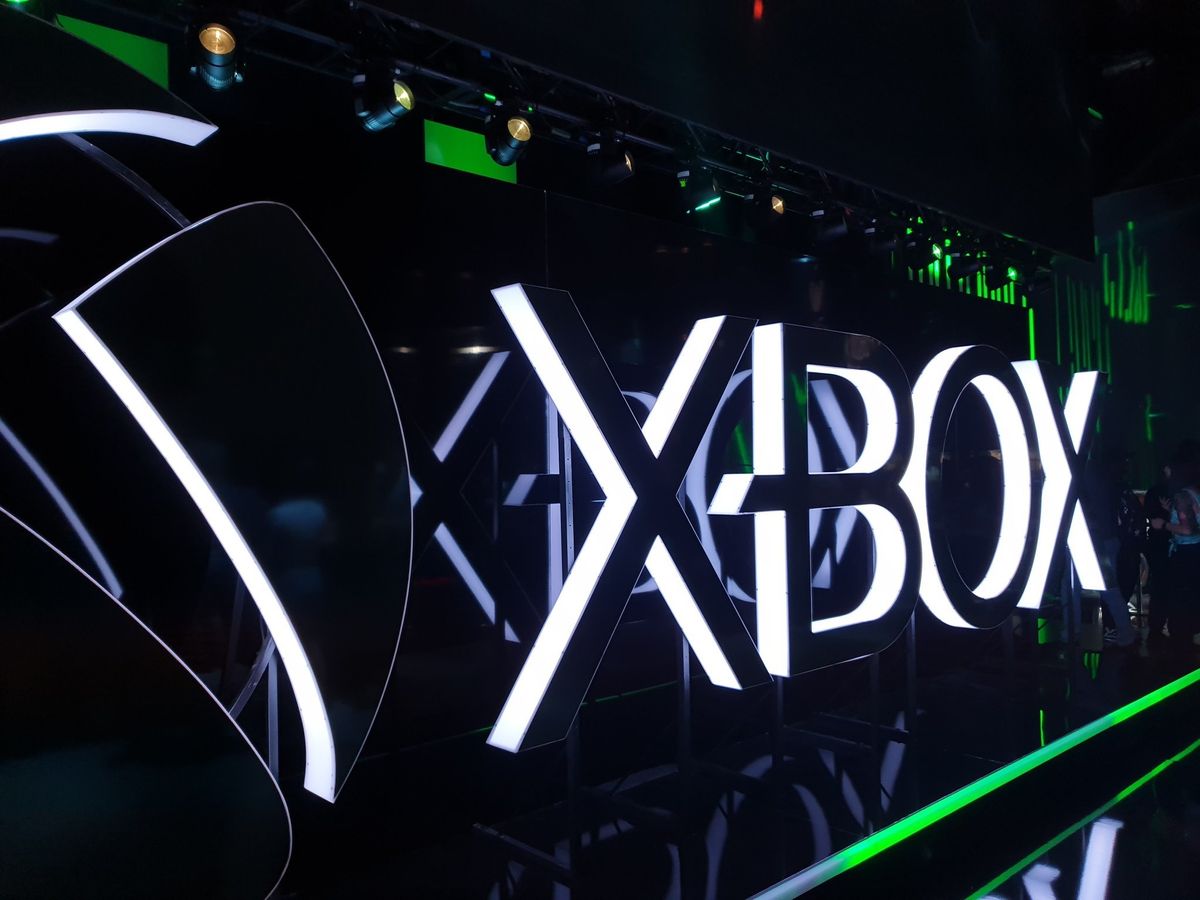
A few years ago, Microsoft picked up Square Enix's Rise of the Tomb Raider, as a timed exclusive. The backlash was palpable. Scores of fans across social media and certain forums decried Microsoft, as well as major outlets and journalists. For fans on other platforms, naturally, it made sense to be angry — the continuation of the story they had become invested in wasn't coming to their preferred console of choice. This Kotaku piece from 2014 summarizes the outrage, moralizing the decision as "hurting gamers."
Should Microsoft stop playing the "good guy"?
Yet, strangely, I don't see the same outrage when Sony drops tens of millions to secure Final Fantasy 7 Remake as a full exclusive for PlayStation, preventing the game from even hitting PC. FF7R's advertised exclusivity period has ended, yet ports to PC or Xbox have yet to be fully confirmed. Final Fantasy 7 isn't the only game Sony secured exclusivity to, either. We have Final Fantasy 16 set up as a timed exclusive for PlayStation 5, too.
I get it, at the end of the day. After that initial wave of "well that sucks" passes, you remember that this is business. What I do have a problem with is the double standard we're seeing play out in some places, particularly given the expectation that Bethesda's upcoming new IP, Starfield, will probably not come to PlayStation, following Microsoft's purchase of ZeniMax.
After the backlash against Rise of the Tomb Raider, Microsoft hasn't really funded any major AAA timed-exclusivity deals for Xbox from third-party studios. Executive vice-president of Gaming at Microsoft, and Xbox lead, Phil Spencer appears to be against the idea of paying for timed exclusivity, reflecting in a tweet how the practice "doesn't feel like growth."
Still, Sony, Epic Games, Nintendo, and others are continuously pursuing exclusivity deals from established franchises for their respective platforms. Should Microsoft stop playing the "good guy"? Or are there signs that it already has ...
Exclusivity FOMO
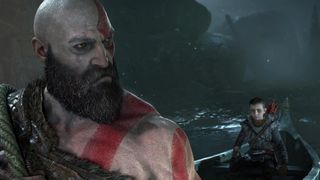
The bullrush for content is more aggressive than ever. Whether it's gaming, streaming services, or even music services, platforms are prioritizing exclusive content in their user acquisition strategies. Sony clearly realized this earlier than Microsoft, given that they've managed to curate some of the most incredible internal studios the industry has to offer, with IP that continuously launches to widespread acclaim. What about those "spiteful" third-party exclusivity deals, though?
As much as it continues to be irritating for us as consumers, I don't really begrudge publishers from entering into these sorts of deals. Square Enix and others are offsetting risk by entering into these marketing partnerships, which are heavily in the spotlight right now, thanks to the prominent Apple vs. Epic battle going on in court in the United States. Epic Games spends millions to keep titles off Valve's Steam platform, going as far as to pay the difference to devs for potential lost sales. I'm not sure exactly what Epic Games' play is here, though. I don't think all the money in the world will allow them to make a dent in Steam's empire. For Xbox and PlayStation, the stakes are a little bit higher, though.
Get the Windows Central Newsletter
All the latest news, reviews, and guides for Windows and Xbox diehards.
PlayStation is a frontrunner in the console business right now, at least on paper. It sells more consoles. Its games have higher engagement (if leaked documents from the Epic vs. Apple case are anything to go by). And thus, it sells more games and microtransactions. Microsoft isn't too far behind, though. Despite having a smaller console footprint, it remains competitive in key high-spending markets, like the U.S. and UK, punching above its weight, allowing Xbox to draw down record revenues and engagement. Microsoft is also finding new markets on the back of its Xbox Game Pass service, which allows Microsoft to sidestep the same sort of backlash it faced with Rise of the Tomb Raider, by offering the same games as PlayStation with far better value. In the case of MLB The Show and Outriders, Xbox Game Pass offers those games at $10 a month, vs. Sony's $70 upfront payment.

Still, for those high-spending gamers with tons of disposable income, it could be argued that the PlayStation's upcoming lineup has less of a question mark hanging over it. You just know God of War Ragnarok and Horizon Forbidden West are going to be good. I'd argue the same cannot be said about Halo Infinite, Avowed, State of Decay 3, or Hellblade 2. I expect them to be good and remain optimistic, but Microsoft is certainly in a position where it has something to prove.
Thanks to ZeniMax, however, the tide could be about to turn for Xbox.
Things get fuzzier when Sony is dropping the big marketing bucks to maintain exclusivity over several key franchises. Fall Guys was missed. Final Fantasy 14 Realm Reborn, Final Fantasy VII Remake, and Final Fantasy 16 are no-shows. Genshin Impact is not on Xbox. Persona is not on Xbox. The list goes on and on. We don't know the full details about why a lot of these major mindshare-grabbing games are missing from Xbox, but as the end-user it doesn't matter ultimately — they're missing, and that's not a good look for Xbox.
As someone who games almost exclusively on Xbox and PC, it's not as though I am dissatisfied with what we get on these platforms. It would be a lie to say I don't look across at PlayStation with a sliver of FOMO and envy for some of their big AAA games. And that's ultimately what Sony wants, and frankly needs. Every time a major franchise skips Xbox, it makes PlayStation look like the premier place to play, which for some, is more compelling than the value offered by Xbox Game Pass. Thanks to ZeniMax, however, the tide could be about to turn for Xbox.
Xbox has shown its competitive streak
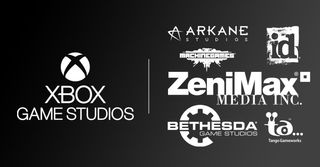
Microsoft dropped 7.5 billion to acquire ZeniMax Media, the corporation behind many industry staple franchises. DOOM, The Elder Scrolls, Fallout, Wolfenstein, Dishonored, The Evil Within, and many more now sit under the Xbox division at Microsoft. Some commentators went on the record to say Microsoft wouldn't hold those franchises from PlayStation, pointing towards things like "profit loss," or the fact Minecraft is multi-platform. I'd argue differently, and have done so in the past over here.
Beyond hearing myself that, indeed, the plan is to make ZeniMax's future games exclusive to platforms where Xbox Game Pass exists, Microsoft itself hinted as much in the recent Bethesda Xbox roundtable event. I've spoken to people at Xbox in the past who project that The Elder Scrolls VI would be the most-engaged iteration of the legendary franchise to date, purely on the basis of Xbox Game Pass. There's simply no reason in a world where you can access Xbox Game Pass cloud streaming on virtually any device, thanks to the upcoming web-based version, to give Sony a 30% cut on those games. This is doubly true in a world where Sony is willing and eager to deliver value for its customers by making its platform the only place to play some major upcoming titles, such as Final Fantasy 16 and so on.

Xbox is more than the console is spawned from now, for sure. However, it all ultimately comes back to the perception of the Xbox brand. Microsoft has seen a ton of critical and commercial success with games like Forza, Flight Simulator, and more, but it hasn't been particularly great at delivering action-adventure titles with character-driven experiences that drive emotional attachments to the brand. I can only love a car in Forza so much. Playing Mass Effect Legendary Edition recently really slammed home why it's such a special franchise, as Bioware invested a ton in creating interactions that form a bond between player and game. Sony is masterful at this too. The intro sequence alone in The Last of Us hit me harder than anything Microsoft has put out in recent years, helping me form an emotional connection to the characters and, by extension, the franchise, which is exclusive to Sony's platform.
Xbox's core studios have been able to deliver the same kind of connections in the past. Gears of War's Dom story arc, and the bond between Master Chief and Cortana in Halo, for example. Microsoft has also produced great experiences in titles like Sea of Thieves, which use multiplayer interactions to create emotional attachments. Variety is the spice of life, though, and much of the discourse seems to revolve around these single-player experiences, fair or not, that have eluded Microsoft in recent years.
With the pedigree of studios under ZeniMax Media, Microsoft has a chance to prove that it too can deliver character-driven experiences on the same level as Sony. As for the perception of the Xbox brand, it only works if those games remain synonymous with Xbox, and thus, remain Windows and Xbox exclusive.
No more mister nice Microsoft
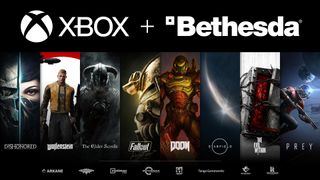
Sony has repeatedly shown it's willing to sabotage Xbox and PC players by locking up games as console exclusive titles. That's fair enough; they have a business to run, and PlayStation is utterly key to Sony's wider corporate growth. When Microsoft does the same, though, it's often seen as some sort of awful thing. Some evil corporation punching down at the smaller Sony (who itself is still worth billions).
Sony may have inspired a competitive streak in Xbox that is unlike anything we've seen before.
In a perfect world, nothing would be exclusive, and we could play whatever we like on anything platform. Alas, I'd argue that competition is the mother of invention, and a healthy industry needs the big three going toe to toe to push the industry forward. If Sony or Microsoft were the only players in the console space, there'd be nothing to stop them from offering less for more, since they'd have nobody competing against them. For the average gamer, though, a lot of this moralizing and corporate philosophizing is irrelevant.
Xbox is fighting back. Picking up ZeniMax was the sort of flex only massive corporations like Microsoft can achieve. It shows that Microsoft is serious about the future of Xbox, faced with existential threats from the likes of Tencent and Amazon, who are competing with Microsoft in the big cloud war. If it was Sony who had purchased ZeniMax, there wouldn't even be a debate about whether those games would go exclusive — everybody knows exactly what Sony would do, and I feel like it wouldn't be met with the same "concerns" and controversy we've seen over ZeniMax.
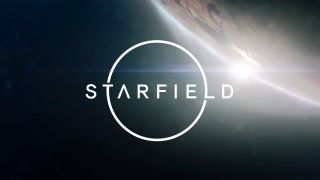




Source: Bethesda and Microsoft
Microsoft has shown that it can deliver massive value to those in its ecosystem, on the back of Xbox Game Pass. Microsoft has shown that it will fund smaller studios' games in exchange for timed exclusivity, with things like STALKER 2 and The Ascent. And now, it has shown that it is willing to make big investments in beloved IP, upon which decades of fan dedication remains. This year, we'll find out definitively if Microsoft is truly willing to take a page out of Sony's playbook and make those big-name ZeniMax games exclusive too. If this is the direction Microsoft is taking, as we expect, Sony will simply struggle to compete with Microsoft's vast money reserves.
Either way, Sony may have inspired a competitive streak in Xbox that is unlike anything we've seen before, and its gamers in the Xbox and Windows PC ecosystem stand to reap the rewards.

Jez Corden is the Executive Editor at Windows Central, focusing primarily on all things Xbox and gaming. Jez is known for breaking exclusive news and analysis as relates to the Microsoft ecosystem while being powered by tea. Follow on Twitter (X) and Threads, and listen to his XB2 Podcast, all about, you guessed it, Xbox!